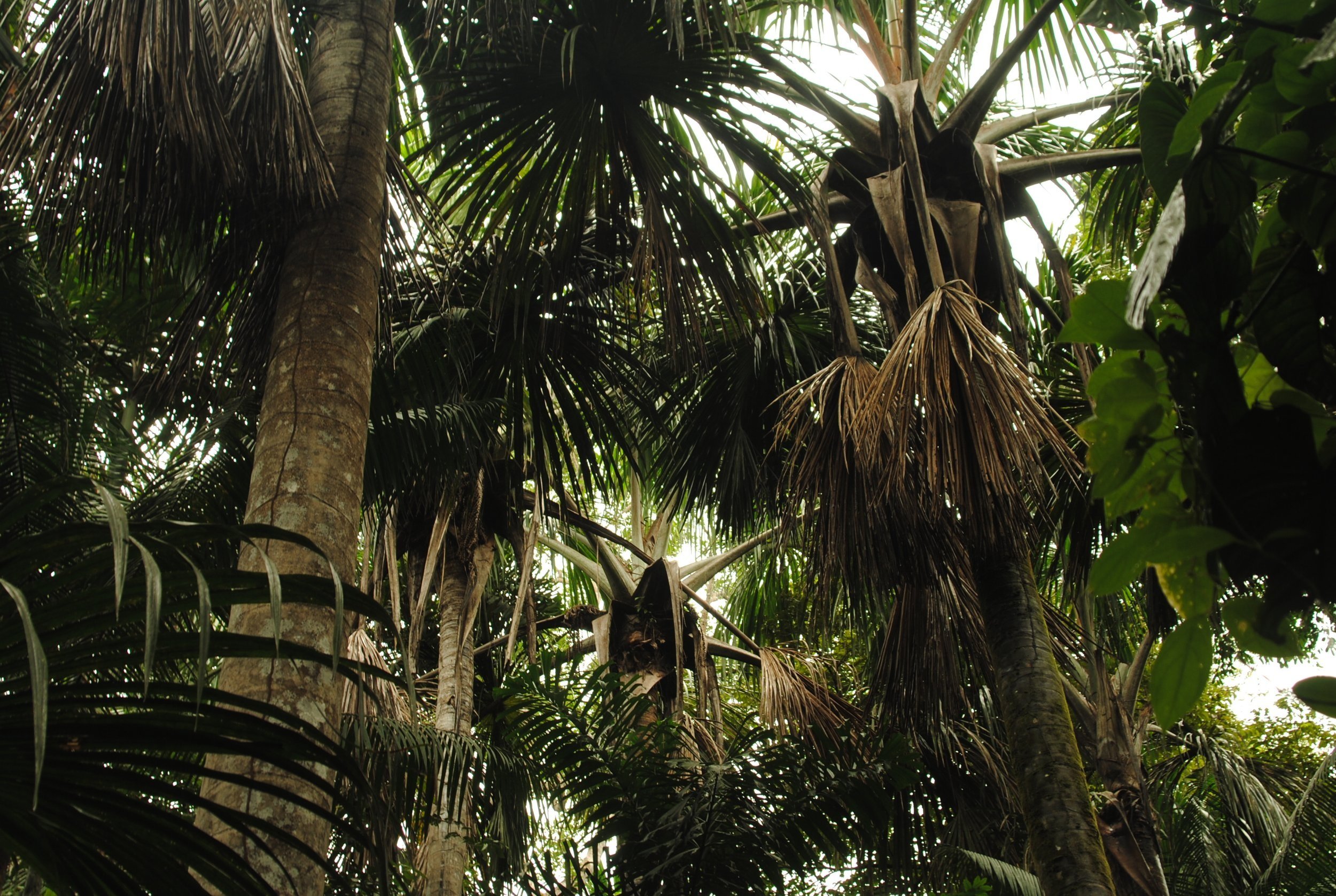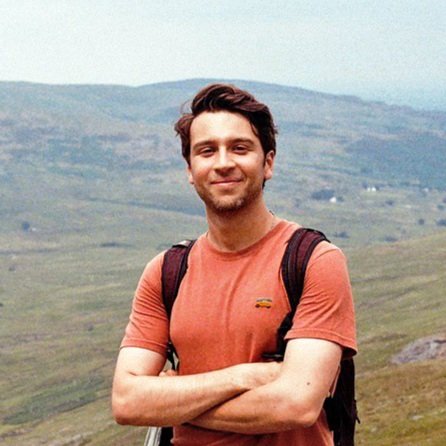
Welcome to Project PALOMA
A Palaeoenvironmental Investigation of Amazonian Lowland Sensitivity to Climatic Drivers Using Pollen-based Modelling Approaches
Our mission
Project PALOMA is a postdoctoral fellowship awarded by Marie Skłodowska-Curie Actions, funded by the European Commission (Horizon Programme). We seek to observe and evaluate the responses of vegetation to climate change in the lowlands of the NW Amazon by implementing pollen-based quantitative reconstruction methods.
Our objectives
-
Enhance the modern pollen dataset for Amazonian lowlands and improve the representation of different taphonomic sources.
-
Apply quantitative methods for pollen-based climate reconstruction to fossil records from NW Amazonia, and evaluate their palaeoecological significance and implications for conservation
Echoes of the Rainforest
Filmed in the heart of the Amazon rainforest, our documentary explores the ground-breaking collaboration between palaeoecologists, ecologists, and indigenous communities working to study and conserve this vital ecosystem. Through exclusive interviews with scientists, conservationists and activists, we reveal how conservation efforts and the study of the Amazon’s ecological history can protect both biodiversity and indigenous communities from mounting environmental threats. Click here to read more!
Also find more details on FilmFreeway.
Meet the team
Dr Gavin Simpson
Project collaborator and secondment coordinator
Aarhus University (Denmark)
Dr Odile Peyron
Project collaborator and secondment coordinator
ISEM, Université de Montpellier (France)
Dr Encarni Montoya
Project supervisor and coordinator
GEO3BCN-CSIC (Barcelona, Spain)
Dr Dael Sassoon
MSCA Postdoctoral Research Fellow
GEO3BCN-CSIC (Barcelona, Spain)
-
MSCA Postdoctoral Research Fellow
Based at: GEO3BCN-CSIC (Barcelona, Spain)
I am an early career researcher mainly interested in palynology and tropical palaeoecology, although my passion for forests and vegetation dynamics covers several areas from the British Isles to the Mediterranean, and to Amazonia. My academic career began at the University of Manchester where I undertook my BSc, MSc and PhD. My PhD project focused on the palaeoecology peatlands in the lowlands of the Peruvian Amazon during the late-Holocene and fluvial influences on their formation. After obtaining my doctorate in December 2021, I took a post-doctoral position at the Museum National d’Histoire Naturelle in Paris where I worked on a high-resolution pollen record from a marine core, focused on the middle Pleistocene (MIS 12 to MIS 10, 350–430 kyr BP), revealing abrupt shifts between glacials and interglacials, central to the rise of Neanderthal populations in Europe. This is where I was introduced to transfer function techniques and the potential of pollen-based palaeoclimatic reconstructions. After undertaking a position as Lab and Field technician at the University of Manchester in 2023-2024, I am ready to face the challenges of Project PALOMA. This MSCA Fellowship offers the springboard I need to become a pioneering researcher in the field of quantitative tropical palaeoecology.
Find me on:
-
Project supervisor
Based at: GEO3BCN-CSIC (Barcelona, Spain)
I am a Neotropical palaeoecologist. My main interests are related to the relationships between vegetation, humans, and environmental drives such as climate or volcanic activity. I analyse these relationships through the study of remains preserved in sedimentary archives, including lake sediments, peat bogs or swamps. Within the sediments, pollen grains, fungal spores, charcoal particles and many more biological remains act as clues of the past and help me to study the ecological dynamics through time, this is, my work tries to tell the stories of the vegetation communities to everyone keen to listen.
My academic background comes from the Universidad de Murcia where I obtained the degree in Biology, through the Universitat Autónoma de Barcelona (master and PhD), Institut Botànic de Barcelona-CSIC (postdoctoral contract), The Open University in UK (NERC Research Fellow), the Institut de Ciències de la Terra «Jaume Almera»-CSIC (Beatriu de Pinos-Marie Curie COFUND and Juan de la Cierva – Incorporación Fellows), the University of Liverpool as a lecturer in environmental change (physical geography), till my current position as a Tenured Scientist at the Geociencies Barcelona (GEO3BCN-CSIC).
Find me on:
-
Project collaborator and secondment coordinator
Based at: Aarhus University (Aarhus, Denmark)
I’m Gavin Simpson. I recently moved to the Department of Animal & Veterinary Sciences, Aarhus University, Denmark, where I am now an Assistant Professor of Applied Biometrics. Prior to this, I was at the Institute of Environmental Change and Society and the Department of Biology at the University of Regina where I had the grand title of Quantitative Environmental Scientist! For a long time prior to that I was a research associate/fellow/‘whatever they decided to call us’ in the Environmental Change Research Centre at UCL.
My work revolves around lakes and how global environmental changes affect aquatic ecosystems across a range of time-scales. I’m particularly interested in biogeochemistry, especially carbon and nitrogen cycling in upland and remote lakes, and climate change impacts on lakes.
I am a palaeolimnologist by training. Palaeolimnologists study the mud in the bottom of lakes for a wide variety of compounds and remains of plants, algae and animals, to attempt to understand how lakes have evolved over thousands of years and how they respond to environmental change. Despite this background as a palaeolimnologist, most of my current work has involved a large amount of contemporary limnology investigating nitrogen biogeochemistry in upland lakes in the UK and Greenland.
Not by design — for a while maths and I didn’t see eye-to-eye that much at school — I’m also a statistical; (palaeo)ecologist, meaning I have the strange skill of understanding statistical methods and how these techniques can be applied to answer ecological questions. I develop software in the R language that implements the specialist techniques ecologists and palaeoecologists use to torture their data into submission.
Find me on:
-
Project collaborator and Secondment coordinator
Based at: ISEM-CNRS (Montpellier, France)
My research aims to reconstruct quantitatively the paleoclimates from proxies (e.g. pollen). My objectives are : (1) to understand climate variability over the last million years, short and long trends, rapid events and their spatial distribution; (2) to produce reliable regional climate syntheses that can be compared with climate models; (3) to identify the impact of climate change on human societies. I reconstruct the spatial variability of climate events in order to understand climate mechanisms and forcings. It is therefore essential to provide quality biotic/abiotic proxies (multi-proxies) and reliable methods (multi-methods). The choice of the regions studied (Europe, Mediterranean) is motivated by the number of data and by the diversity of environments. I am also developing new methodological approaches to better understand the pollen/vegetation relationships in the present (OSU PolliMed Project). Since 2016, I’m the scientific co-manager of the Palynology facility (PollenExtra) at ISEM.
Find me on:
-
Dr Mark Bush (Neotropical Paleoecology Research Group, Florida Institute of Technology, USA)
Dr Euridice Honorio Coronado (University of St Andrews, Scotland, UK)
Dr Suzette Flantua (University of Bergen, Norway)
C. Gabriel Hidalgo Pizango (Instituto de Investigaciones de la Amazonía Peruana, Iquitos, Peru)
Ander Dàvila Diaz (Instituto de Investigaciones de la Amazonía Peruana, Iquitos, Peru)
Gonzalo Jimenez (Tiputini Biodiversity Station, Universidad San Francisco de Quito, Ecuador)
Dr Crystal McMichael (University of Amsterdam, Netherlands)
Dr Katherine Roucoux (University of St Andrews, Scotland, UK)
Dr Marie-Pierre Ledru (ISEM, Université de Montpellier, France)
About us
Our planned outputs
Updated Amazonian modern pollen database
Pollen-based climatic models
Scientific publications
Conference participation and seminars
Vlogs and social media communication
Documentary
School outreach
Magazine articles
















